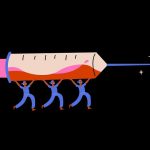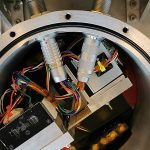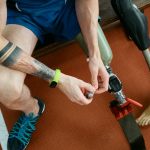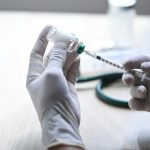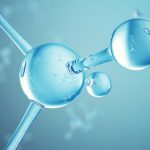One smart capsule could replace multiple pills a day
Imagine taking just one pill in the morning and being covered for all your medications for the entire day.
That’s the future scientists at the...
Scientists tattoo tiny tardigrades to pioneer new microtech for living creatures
Tardigrades—tiny, water-dwelling creatures also known as "water bears"—are some of the toughest animals on Earth.
They can survive freezing temperatures, extreme radiation, dehydration, and even...
World’s first baby born through fully automated IVF procedure
In a major breakthrough for fertility science, the first baby has been born using a completely automated system for a key step in IVF...
Scientists create fast, scalable way to make cancer-fighting nanoparticles
MIT engineers have developed a faster, easier way to mass produce tiny drug-carrying particles that could help treat cancer more effectively, especially ovarian cancer.
These...
Scientists create long-lasting drug injections that could work for years
MIT engineers have developed a new way to deliver drugs that could last for months—or even years—with just one small injection.
This exciting invention could...
Tardigrade protein could help cancer patients handle radiation treatment
Radiation therapy is a powerful tool for fighting cancer, but it comes with painful side effects.
About 60% of cancer patients receive radiation, and many...
Shrimp shells could help deliver medicine in space
Scientists are exploring a new way to deliver medicine in space using chitosan, a material made from shrimp shells.
Chitosan is already used on Earth...
How nanotechnology is transforming prosthetics
Prosthetics have come a long way from the simple wooden legs and hooks of the past.
Today, advanced prosthetics can mimic the movement of natural...
Breakthroughs in vaccines for common infections
As we age, our immune systems naturally weaken, making seniors more vulnerable to certain infections.
Pneumonia, shingles, and the flu are just a few examples...
Regenerative medicine: healing from within
Imagine a world where damaged organs and tissues could heal themselves, where a failing heart or worn-out cartilage could regenerate just like your skin...





